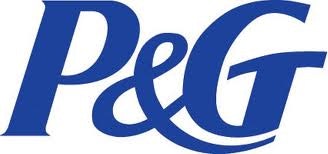Tremblant Capital Group, founded by Brett Barakett, is a hedge fund specializing in consumer goods and services. As CEO, Barakett’s strategy has been to forecast consumer behavior and to correlate it to share price action. Before founding Tremblant Capital Group, Barakett was a portfolio manager at Louis Bacon’s Moore Capital. His brother, Timothy Barakett, was the former manager of Atticus Capital, which discontinued its operations and liquidated its assets in August 2009, and is the present chairman of TRB Advisors.
The following is a review of Tremblant’s four largest holdings based on its most recent 13F regulatory filing.
Procter & Gamble
A Dow Jones component, the Procter & Gamble Company (NYSE:PG) has had very steady price action over the past four years, with shares trading between $60 and $70 a share throughout. The company has increased its dividend 56 consecutive years, with a yield of about 3.3 percent. There is some concern, however, that the company might be resting on its laurels since it spends only $2.03 billion per year on new product research and development (though the company’s brands are iconic). The stock’s forward P/E, using earnings for the 2014 fiscal year, is 16.4, which is around fair value. With short-term treasuries yielding a nominal loss, Procter & Gamble—one of the “World’s Best Companies”—is an attractive income play.
Imax
In 2010 and 2011, IMAX Corporation (NYSE:IMAX) installed 65 IMAX Digital 3D screen systems into standard movie theaters, bringing the total number of theaters installed to 700. Additionally, insider Kevin Douglas has recently buttressed his 13 percent stake in the company, and his agreement to stay under 20 percent ownership expires in a few months. Shares are trading at 19 times forward earnings, and the lagging P/E, presently 47, has been winding down from its 100+ high in March. If IMAX Corporation continues to retrofit more movie theaters with its digital video equipment, then growth-pricing might be appropriate. The stock’s PEG ratio, which accounts for earnings growth and P/E (lower is better), is at 1.2, suggesting that if IMAX is able to continue on its predicted growth pattern, then its present valuation makes it a fair buy.
Visa
Visa Inc (NYSE:V) is hoping to take a fair share of the growing tendency for cashless payment. In a way, this will be a win-win for both Visa and its major competitor, Mastercard Inc (NYSE:MA), who are both focusing on growth and less on out-competing the other. Visa’s forward P/E of 18.8 implies a fair amount of growth, so in the context of the sluggish financials sector, Visa has the dynamism associated with an information technologies firm. For this reason, it is one of the most popular holdings among hedge funds (see which hedge funds have positions in Visa Inc here).
Union Pacific
Union Pacific Corporation (NYSE:UNP) owns a number of rail and transportation companies that serve 23 states in the western United States and link with Canadian rail lines. Second quarter revenue was up 7 percent for the company, and net margin increased from 13.4 percent in 2009 to 16.8 percent in 2011. Shares are trading at about 14 times 2012 estimated earnings, whereas its 5-year average P/E range is 10.5 to 36.3, suggesting competitive valuation. The company expects $3.6 billion in capital expenditures in 2012 to improve and develop its rail infrastructure in the West, so it stands to benefit from an improvement in the housing and energy markets.






